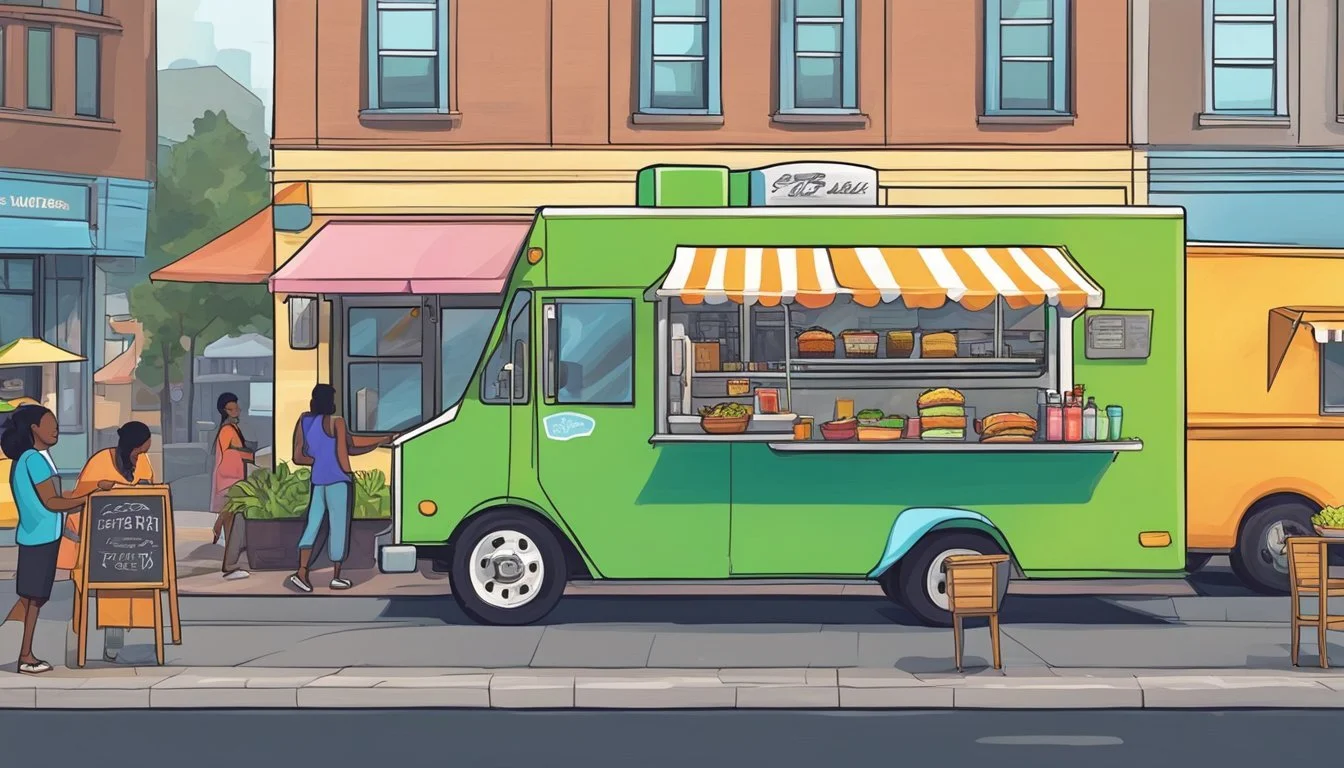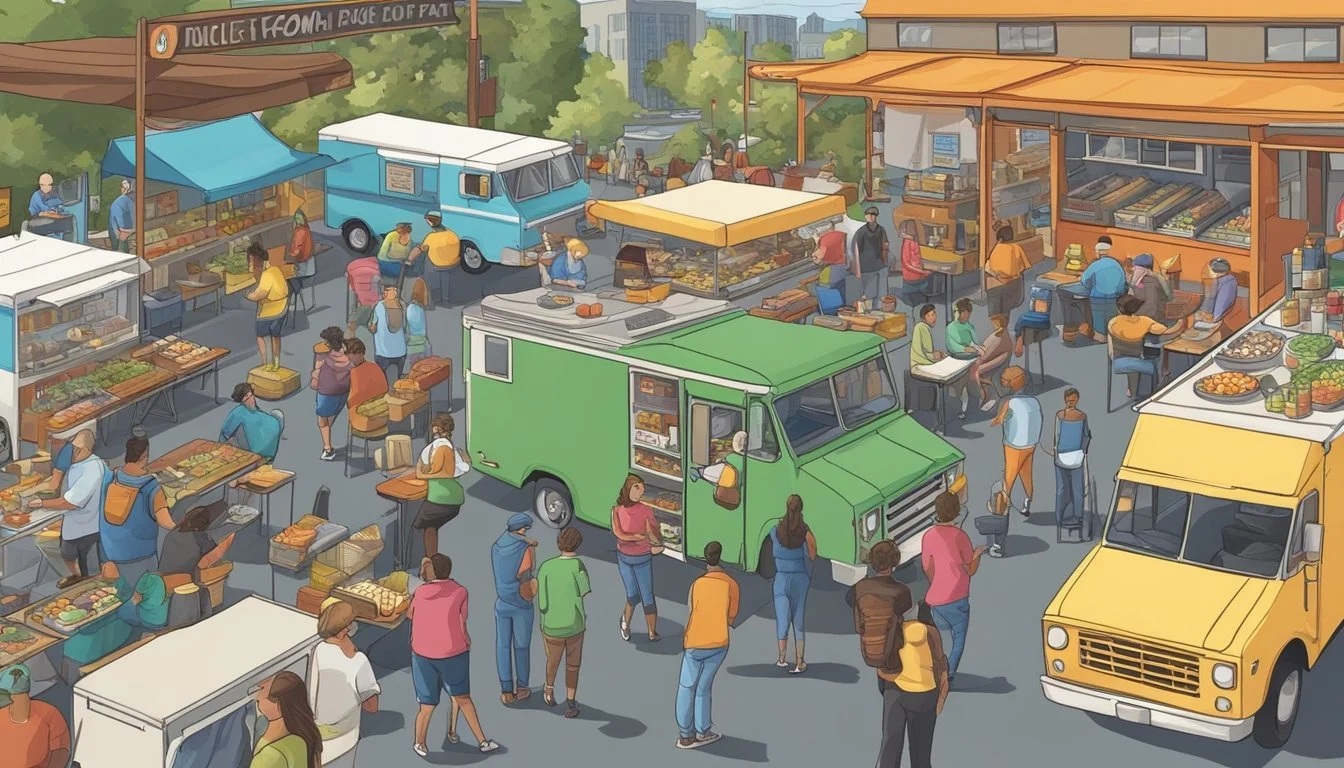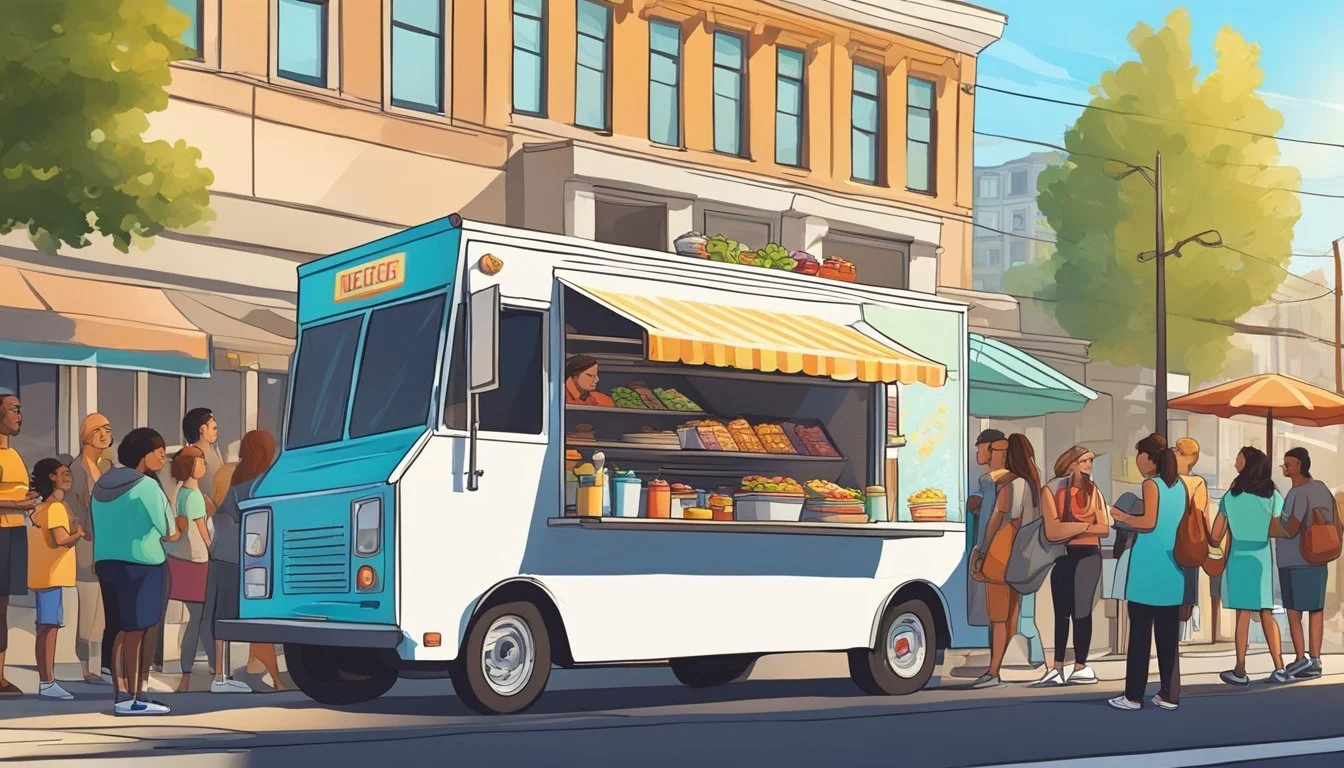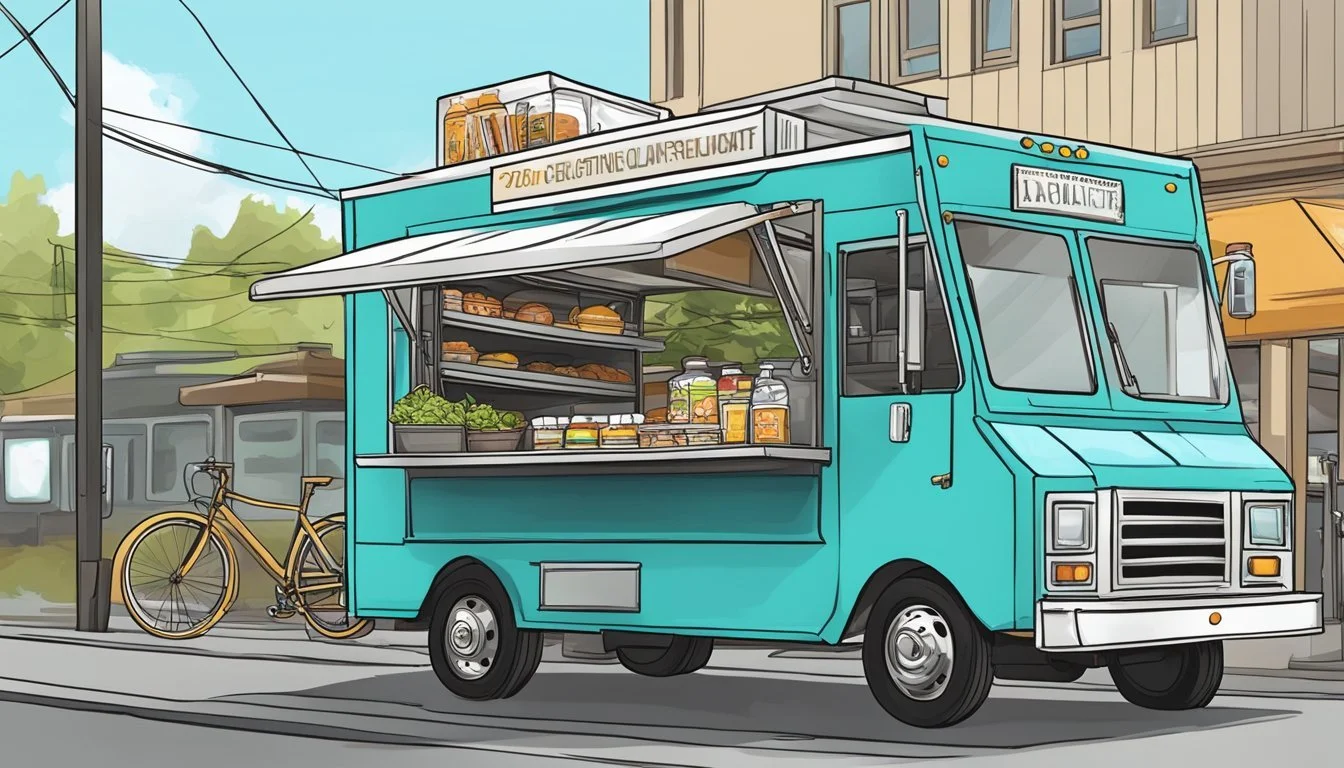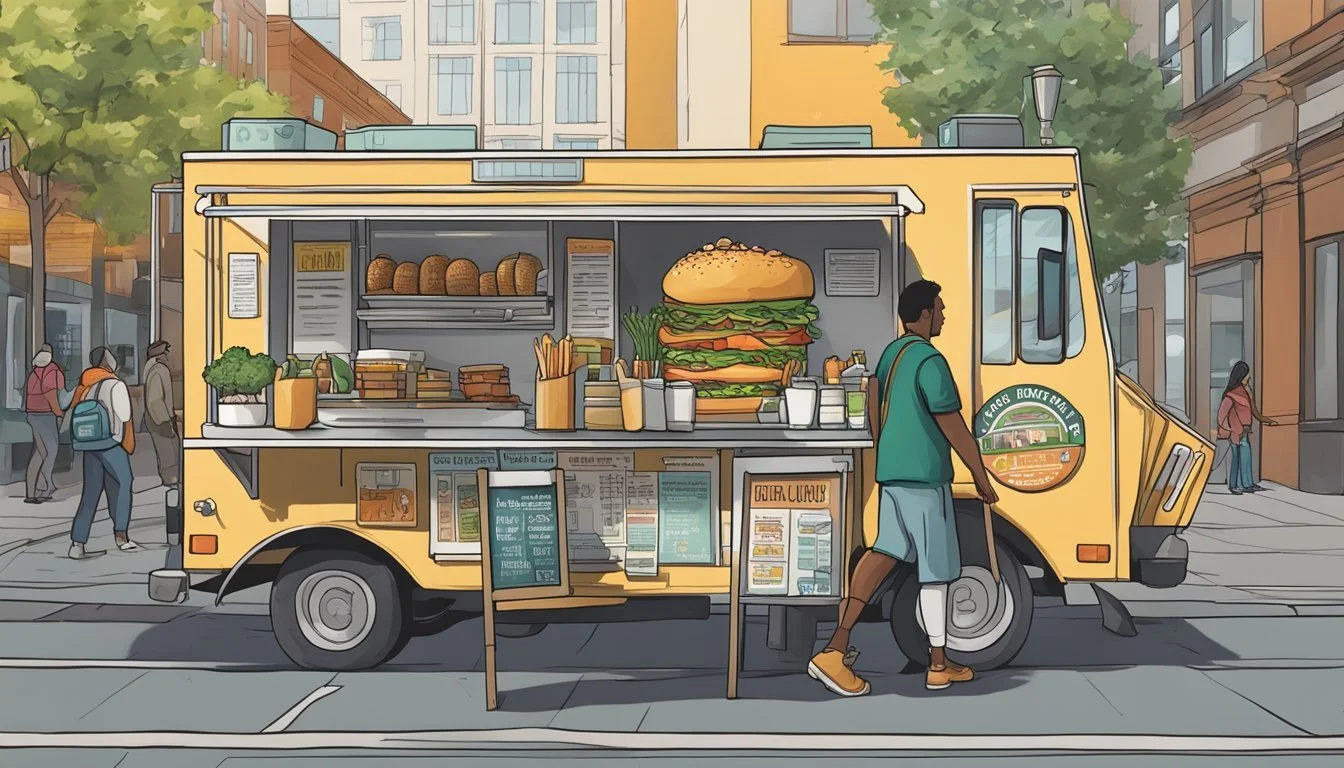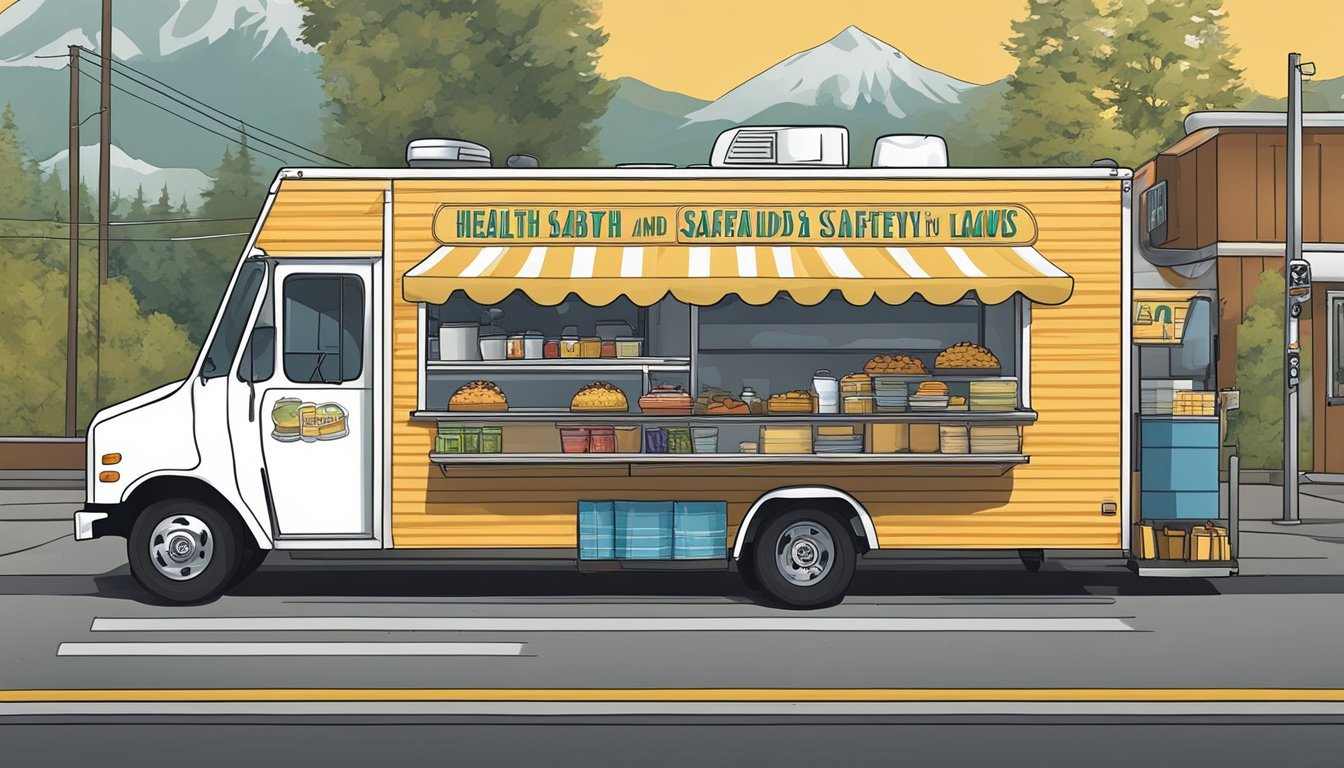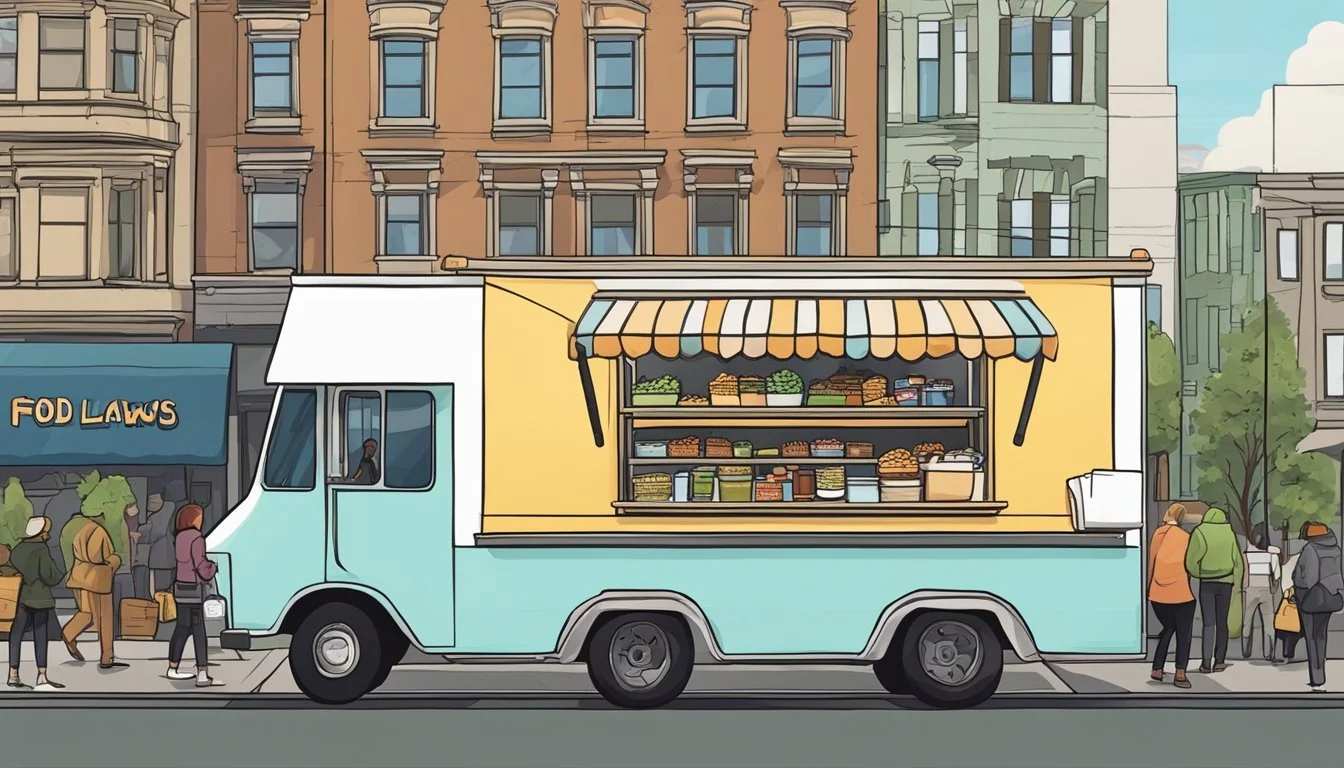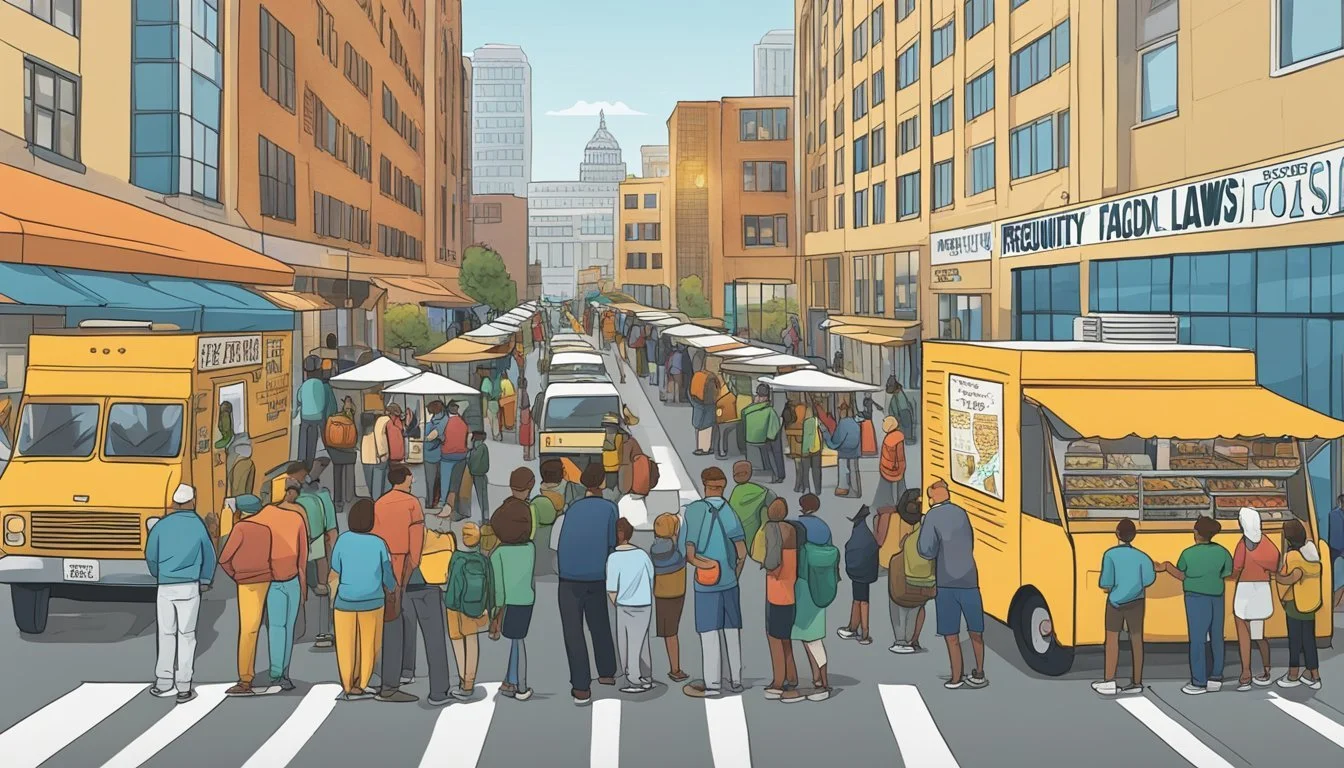Food Truck Laws Tacoma, Washington
Your Complete Guide to Compliance
The food truck scene in Tacoma, Washington, is a vibrant and growing sector, inviting a diverse array of culinary entrepreneurs to serve the community. Navigating the array of regulations, permits, and requirements is a crucial step for these mobile vendors. In Tacoma, food trucks are subject to specific laws that govern where they can operate, how they must be equipped, and the safety standards they must meet. Compliance with these laws ensures that food truck operators can serve their customers safely and legally, contributing positively to the city's bustling street food culture.
Local authorities, including the City of Tacoma and the Tacoma-Pierce County Health Department, mandate that all food trucks have proper permitting and meet health code regulations. Additionally, adherence to fire safety standards as outlined in the 2018 International Fire Code and Washington State Fire Code is non-negotiable to protect both workers and patrons. These guidelines ensure food preparation and sales are conducted in a manner that aligns with public well-being and business fairness.
Food truck operators in Tacoma must also ensure their facilities have access to utilities such as city water and sewer, and provide restrooms with hot and cold water for their staff. The city's rules are designed to foster a food truck program that is both inviting for new businesses and safe for consumers. For those intending to join the Tacoma food truck community, understanding and acting on these requirements is the foundation for culinary and commercial success in the region.
Tacoma Food Truck Overview
In Tacoma, Washington, mobile food vending is a popular and growing facet of the city's culinary scene. Food trucks in Tacoma must comply with both the city-specific regulations and Washington State laws to ensure safe and lawful operation.
Business operators intending to sell food in Tacoma's public spaces are required to participate in the Mobile Food Truck Program. This program mandates food trucks to operate on City Right of Way with appropriate permits. For individuals looking to launch their food truck business, they must navigate various requirements, from permits to health and safety compliance.
The Tacoma-Pierce County Health Department meticulously outlines conditions for mobile food units, requiring them to operate out of two kitchens: the truck or trailer itself and a commissary. Each kitchen has its own set of rules, especially regarding refrigeration. Mobile units are typically outfitted with a minimum of two refrigeration units to meet these standards, one being a prep top cooler commonly used during service.
Moreover, food trucks must align with the 2018 International Fire Code (IFC) and the 2018 Washington State Fire Code, which set forth the regulations for mobile food preparation vehicles. Permits are essential, as stated in Section 105.6 of these guidelines.
Operating Locations: Food trucks have designated locations and hours of operation, ensuring they meet the city's planning and traffic objectives.
Permit Requirements:
City-specific permits
Health department permits
Fire code compliance
Food truck vendors should also refer to Tacoma Municipal Code for additional regulations encompassing sales and operations in the area. Entrepreneurs keen on partaking in Tacoma's food truck culture must diligently abide by the established guidelines to contribute to a vibrant and orderly street food environment.
Starting a Food Truck Business
Embarking on a food truck venture in Tacoma, Washington requires meticulous planning and adherence to various regulations. Entrepreneurs must first establish a business structure, such as an LLC or partnership, and obtain the necessary business license to operate legally.
Requirements for starting a food truck in Tacoma encompass procuring a suitable vehicle and equipping it with the necessary equipment. Prospective owners should prepare for a plan review by the Tacoma-Pierce County Health Department to ensure their mobile kitchen meets health and safety standards.
Here are key steps to consider:
Business Formation
Choose the business structure (e.g., LLC or partnership)
Register the business and obtain a business license
Plan Review and Permitting
Submit plans for the food truck build-out
Pass the Tacoma-Pierce County Health Department’s review
Acquire additional permits, such as fire safety inspection certificates
Costs and Budget Planning
Initial investment in vehicle and equipment
Ongoing expenses: ingredients, fuel, maintenance, and labor
Insurance
Liability insurance for the business
Vehicle and property insurance
Location and Operation
Identify pre-approved locations for operation as specified by City of Tacoma regulations
Plan the hours of operation and adhere to the city's designated times
Prospective food truck owners must consider the cost of purchasing or leasing a food truck, which includes the initial investment as well as maintenance and operational expenses. Adequate insurance is also a critical component, covering not just the vehicle but also liability for the business.
Thorough planning and compliance with legal requirements pave the way for a successful food truck business in Tacoma. For additional support and industry-specific insights, joining organizations such as the Washington State Food Truck Association can prove beneficial.
Regulatory Requirements
Operating a food truck in Tacoma, Washington requires adherence to specific regulatory requirements to ensure public safety and compliance with local laws. These regulations are in place to prevent foodborne illness and to ensure that food served to the public is safe.
Health Department Compliance
Food truck operators in Tacoma must obtain a health department permit to ensure that their operation meets the guidelines set by the Tacoma-Pierce County Health Department. To receive approval, the truck must be associated with a commissary kitchen that has hot and cold water available and is connected to city water and sewer services. This partnership ensures that all food is prepared in an approved kitchen.
Obtaining Necessary Permits
Several permits are required for a food truck to legally operate within Tacoma. The process begins with an application to the City of Tacoma for a mobile food truck regulatory license. Operators must also provide evidence of commercial liability insurance, any required sales site agreements, and adhere to zone-specific regulations. Furthermore, trucks that meet the required standards of Tacoma's food truck program receive a specific decal indicating compliance.
Food Safety and Inspections
Regular inspections are a critical aspect of operating a food truck, maintaining food safety, and avoiding the spread of foodborne illnesses. Compliance with the Washington State Food Truck & Trailers regulations mandates that all mobile food units must pass an inspection by the Department of Labor & Industries (L&I). This inspection includes verification of equipment safety and adherence to the 2018 International Fire Code as it pertains to mobile food preparation vehicles.
Local Food Truck Laws and Guidelines
Food trucks in Tacoma follow specific regulations aimed at ensuring safety, fairness, and community involvement in vending operations. Each area—zoning, operation, and special events—has tailored guidelines that vendors must adhere to.
Vending Locations and Zoning
The City of Tacoma has a designated process for food truck operators to identify and request new vending locations. This includes ensuring food trucks comply with the Tacoma Municipal Code (TMC) Chapter 6B.175. Local governments provide opportunities for the community to comment on proposed vending locations, balancing the interests of food truck owners with those of stationary businesses and residents.
Operating in Tacoma and Surrounding Areas
Tacoma and the surrounding areas in Pierce County enforce specific requirements for food truck operation. Operators must comply with various local building and fire codes, including the installation of appropriate venting hoods. The Tacoma-Pierce County Health Department provides guidance, ensuring that all food trucks have access to approved kitchen facilities and restrooms. Compliance with health and safety regulations is imperative for all food trucks to obtain the necessary regulatory licenses to legally operate.
Special Events and Catering
Food trucks engaging in special events and catering in Tacoma must adhere to the Tacoma-Pierce County Health Department regulations. For public events, operators often require a special event license, in addition to their regular vending licenses. Catering services and special event participation must also follow all pertinent health guidelines, ranging from food preparation to waste management. Private property engagements must align with the specific rules set by local jurisdictions regarding temporary commercial activity.
Licensing and Inspections
In Tacoma, Washington, operating a food truck requires adhering to specific licensing protocols and passing rigorous inspections designed to ensure public safety and compliance with state and local regulations.
Washington Business Licensing
Every food truck in Tacoma must obtain a Washington Business License before beginning operations. This general business license is the foundation for legally conducting commercial activities within the state. Additionally, the City of Tacoma mandates a food truck license and, if applicable, a Home Occupation License. Operators must ensure that they have the necessary permits, which can include a Mobile Food Unit permit and potentially a commercial coach or modular building permit if the unit qualifies as such, according to the Tacoma Food Truck Requirements.
Mobile Unit Specific Inspections
Food trucks are subject to a series of inspections to certify safety and operational standards. The Tacoma Fire Department conducts inspections, scrutinizing the electrical system, water or drain system, and fire suppression system among other safety considerations. Passing this inspection is vital for securing the city food truck license. The Department of Labor & Industries (L&I) also plays a crucial role, as they must inspect and approve any unit with gas, electrical, or other specialized systems, culminating in the issuance of the coveted L&I Insignia. It is paramount that food trucks meet stringent safety standards to protect both workers and patrons. Moreover, Tacoma requires liability insurance for mobile food vendors as a layer of financial protection against unforeseen events.
Health and Safety Standards
In Tacoma, Washington, stringent health and safety standards are mandated for food trucks to ensure the welfare of consumers. These regulations, enforced by the health department, include certification requirements for food handlers and managers along with adherence to safe food preparation and storage procedures.
Food Handler’s Certificate
Every employee handling food within a food truck in Tacoma is required to obtain a Food Handler’s Certificate. To secure this certificate, the employee must pass an exam that verifies their understanding of essential food safety practices. These guidelines ensure the individual is equipped to handle food in a manner that mitigates the risk of foodborne illnesses.
Food Protection Management
It is also compulsory for food trucks to have at least one staff member with a Food Protection Manager Certification. This certification demands a comprehensive understanding of food safety and involves an advanced exam administered by the health department. Food protection managers are responsible for overseeing the safe preparation and service of food on the premises, ensuring all food safety procedures are meticulously followed.
Operational Aspects of Food Truck Business
When considering the operational aspects of running a food truck business in Tacoma, Washington, one must navigate various elements such as meticulous menu planning, efficient equipment and utilities management, employee and labor laws, as well as thorough financial planning.
Menu Planning and Food Preparation
A carefully curated menu that aligns with the capabilities of the food truck's kitchen space is essential. Menu selection influences the choice of equipment and impacts food preparation processes. Food truck operators should also ensure compliance with local health regulations during food preparation, including maintaining appropriate water or drain systems inside the truck.
Equipment and Utilities Management
Equipment needs are largely dictated by the menu. Standard requirements include a reliable electrical system and propane for cooking. In addition, the Tacoma-Pierce County Health Department suggests that each piece of equipment may require separate permits, especially when changing a menu or upgrading equipment. Utilities management extends to the proper use and maintenance of fuel sources to ensure safety and operational efficiency.
Employee and Labor Considerations
Compliance with labor laws involves obtaining the necessary insurance and adhering to employee rights and schedules. Tacoma food truck owners should also consider the training required for employees to safely handle equipment and prepare food, while effectively managing labor costs.
Costs Involved and Financial Planning
The costs of operating a food truck in Tacoma can be quite varied. Key expenses include the initial outlay for equipment, ongoing fuel and maintenance costs, insurance, membership dues, and possible consulting fees for legal and financial advice. Operators must develop a precise financial plan, accounting for variables such as fluctuating fuel prices or emergency repairs, which includes setting up systems for payment collection from customers.
Frequently Asked Questions
What permits are required for operating a food truck in Tacoma, Washington? To operate a food truck, one needs several permits, including a Mobile Food Unit License, a Business License, a Sales Tax Permit, and a Food Worker Card. It is vital to check with both the City of Tacoma and the Tacoma-Pierce County Health Department for specific regulations.
Are there any specific health department regulations for food trucks? Yes, food trucks are subject to local health department regulations to ensure food safety and public health. The operators must comply with the guidelines provided by the Tacoma-Pierce County Health Department, which may include food handling, storage, and preparation standards.
How does one apply for a food truck location in Tacoma? Aspiring food truck operators should complete the Food Truck Location Request form provided by the city and submit it via email or in person. Check the guidelines detailed on the city's official site for more information.
Where can one find resources for starting a food truck business in Washington? The Washington State Food Truck Association offers extensive resources, advice, and FAQs that are beneficial for both newcomers and established food truck entrepreneurs.
Who does one contact for questions regarding food truck requirements in Washington State? For questions related to food trucks and trailers, individuals can contact the Washington State Department of Labor & Industries via email or phone as provided on their department's webpage. They provide assistance with plan submission and other regulatory requirements.

